
The Common Desktop Environment (CDE) is a desktop environment for Unix and OpenVMS, based on the Motif widget toolkit. It was part of the UNIX 98 Workstation Product Standard, and was for a long time the Unix desktop associated with commercial Unix workstations. It helped to influence early implementations of successor projects such as KDE and GNOME, which largely replaced CDE following the turn of the century.

Mandriva Linux is a discontinued Linux distribution developed by Mandriva S.A.
The Harmony toolkit is a free software widget toolkit that aimed to be API compatible with the then non-GPL licensed Qt widget toolkit. The QPL license that Qt used was free only if the program was not sold for profit and if its source code was freely available. It was later released under the terms of the GNU Lesser General Public License (LGPL).

The GNU Project is a free software, mass collaboration project announced by Richard Stallman on September 27, 1983. Its goal is to give computer users freedom and control in their use of their computers and computing devices by collaboratively developing and publishing software that gives everyone the rights to freely run the software, copy and distribute it, study it, and modify it. GNU software grants these rights in its license.

Window Maker is a free and open-source window manager for the X Window System, allowing graphical applications to be run on Unix-like operating-systems. It is designed to emulate NeXTSTEP's GUI as an OpenStep-compatible environment. Window Maker is part of the GNU Project.

PCLinuxOS, often shortened to PCLOS, is a rolling release Linux distribution for x86-64 computers, with KDE Plasma, MATE, and XFCE as its default user interfaces. It is a primarily FOSS operating system for personal computers aimed at ease of use.

PyQt is a Python binding of the cross-platform GUI toolkit Qt, implemented as a Python plug-in. PyQt is free software developed by the British firm Riverbank Computing. It is available under similar terms to Qt versions older than 4.5; this means a variety of licenses including GNU General Public License (GPL) and commercial license, but not the GNU Lesser General Public License (LGPL). PyQt supports Microsoft Windows as well as various kinds of UNIX, including Linux and MacOS.
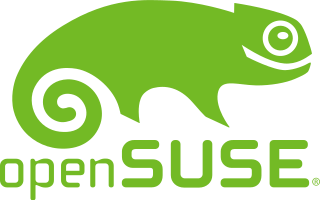
openSUSE is a free and open-source Linux distribution developed by the openSUSE project. It is offered in two main variations: Tumbleweed, an upstream rolling release distribution, and Leap, a stable release distribution which is sourced from SUSE Linux Enterprise.
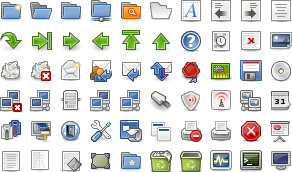
The Tango Desktop Project was an open-source initiative to create a set of design guidelines and to provide a consistent user experience for applications on desktop environments. The project created a set of icons known as the Tango Icon Library and that were described as a "proof of concept". The Tango Desktop Project was a project of freedesktop.org, and was closely linked with other freedesktop.org guidelines, such as the Standard Icon Theming Specification.

The Oxygen Project is a project created to give a visual refresh to KDE Plasma Workspaces.

KDE Plasma 4 is the fourth generation of the KDE workspace environments. It consists of three workspaces, each targeting a certain platform: Plasma Desktop for traditional desktop PCs and notebooks, Plasma Netbook for netbooks, and Plasma Active for tablet PCs and similar devices.

Dolphin is a free and open source file manager included in the KDE Applications bundle. Dolphin became the default file manager of the KDE Plasma desktop environments in the fourth iteration, termed KDE Software Compilation 4. It can also be optionally installed on K Desktop Environment 3. It replaces Konqueror as the default file manager for KDE SC 4, but Konqueror can still be used as an alternative file manager.
David Vignoni is an Italian graphic designer specialising in icon and digital product design.

Hanthana Linux is a Linux distribution based on Fedora, distributed as free and open source software.
Fedora Linux is a popular Linux distribution developed by the Fedora Project. Fedora attempts to maintain a six-month release schedule, offering new versions in May and November, although some releases have experienced minor delays.

Chakra was a Linux distribution originally based on Arch Linux and focused on KDE software, intending to provide a KDE/Qt minimizing use of other widget toolkits where possible. It was well received by critics during its existence.
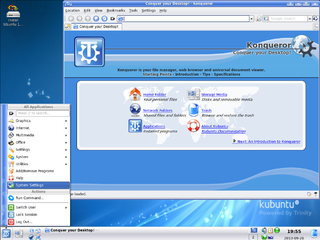
The Trinity Desktop Environment (TDE) is a complete software desktop environment designed for Linux and Unix-like operating systems, intended for computer users preferring a traditional desktop model, and is free/libre software. Born as a fork of KDE 3.5 in 2010, it was originally created by Timothy Pearson, who had coordinated Kubuntu remixes featuring KDE 3.5 after Kubuntu switched to KDE Plasma 4.

Manjaro is a free and open-source Linux distribution based on the Arch Linux operating system that has a focus on user-friendliness and accessibility. It uses a rolling release update model and Pacman as its package manager. It is developed mainly in Austria, France and Germany.
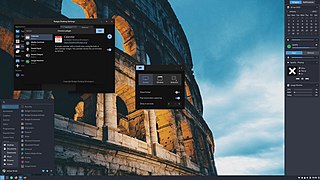
Budgie is an independent, free and open-source desktop environment for Linux and other Unix-like operating systems that targets the desktop metaphor. Budgie is developed by the Buddies of Budgie organization, which is composed of a team of contributors from Linux distributions such as Fedora, Debian, and Arch Linux. Its design emphasizes simplicity, minimalism, and elegance, while providing the means to extend or customize the desktop in various ways. Unlike desktop environments like Cinnamon, Budgie does not have a reference platform, and all distributions that ship Budgie are recommended to set defaults that best fit their desired user experience.
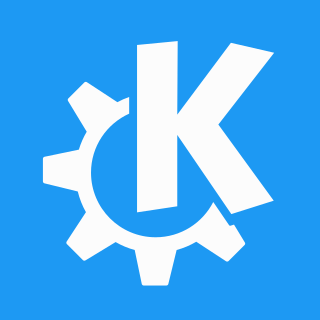
KDE Projects are projects maintained by the KDE community, a group of people developing and advocating free software for everyday use, for example KDE Plasma and KDE Frameworks or applications such as Amarok, Krita or Digikam. There are also non-coding projects like designing the Breeze desktop theme and iconset, which is coordinated by KDE's Visual Design Group. Even non-Qt applications like GCompris, which started as a GTK-based application, or web-based projects like WikiToLearn are officially part of KDE.















